
Why is it important to save water?
💧 Water is a vital resource that we often take for granted. It’s crucial not only for our survival but also for the well-being of the entire ecosystem. That’s why it’s essential to understand the significance of saving water.
💧 One of the primary reasons to conserve water is to ensure a sustainable future. As the global population continues to grow, the demand for water increases. By saving water now, we can help prevent water scarcity in the future and ensure there’s enough to meet the needs of future generations.
💧 Conserving water is also necessary to reduce our environmental footprint. Water treatment and distribution require a significant amount of energy, contributing to greenhouse gas emissions. By using water wisely and conserving it, we can help mitigate climate change and preserve our planet for future generations.
💧 Saving water also has a significant impact on our finances. With water scarcity becoming an increasing concern, water prices are likely to rise. By adopting simple habits like fixing leaks, using efficient appliances, and practicing mindful water use, we can save money on our utility bills.
💧 Furthermore, conserving water can help protect various ecosystems and habitats. Many plants and animals rely on water sources like rivers, lakes, and wetlands for their survival. By reducing water consumption and avoiding water pollution, we can preserve these habitats and support a diverse range of species.
💧 Lastly, saving water promotes an overall sustainable lifestyle. It encourages us to be more mindful of our consumption patterns and make conscious choices to reduce waste. By being aware of the importance of water conservation, we can extend our efforts to other areas of sustainability, creating a positive impact on the environment.
Effective tips to save water at home
😄
Water is a precious resource that we often take for granted. It is essential for our daily activities, but it’s important to be mindful of our water usage to help preserve this valuable resource. In this article, we will discuss effective tips to save water at home.
Fix any leaks:
One of the most effective ways to save water is to fix any leaks in your home. A small leak can waste a significant amount of water over time. Regularly check for leaks in faucets, toilets, and pipes, and fix them promptly to avoid water wastage.
Use water-efficient appliances:
Investing in water-efficient appliances can help save water. Look for appliances with a high Water Efficiency Rating (WER) when purchasing new ones. For example, a water-efficient washing machine uses less water per load, reducing water usage in your home.
Install low-flow fixtures:
Installing low-flow fixtures in your home is an effective way to reduce water consumption. These fixtures, such as low-flow showerheads and faucets, limit the amount of water that flows through them without compromising your comfort or convenience.
Practice shorter showers:
Long showers can use up a significant amount of water. By practicing shorter showers, you can reduce water consumption. Consider setting a timer or using a low-flow showerhead to help you keep track of your shower time and limit water usage.
Collect and reuse rainwater:
Another effective tip to save water is to collect and reuse rainwater. Install a rain barrel in your garden to collect rainwater, which can then be used for watering plants or washing outdoor surfaces. This helps lessen your reliance on municipal water sources.
Water your plants efficiently:
When watering plants, be mindful of how much water you use. Water plants early in the morning or late in the evening when evaporation rates are lower. Additionally, use a watering can or a drip irrigation system to deliver water directly to the roots, minimizing water waste.
Ways to reduce water consumption in your garden
😄 Ways to reduce water consumption in your garden
Reducing water consumption in your garden is not only environmentally friendly, but it can also save you money on your water bill. Here are some effective ways to minimize water usage in your garden:
Choose native plants
Native plants are well adapted to your local climate and soil conditions, making them more water-efficient. These plants require less water and have a better chance of thriving in your garden.
Use mulch
Mulching your garden beds can help retain soil moisture, reducing the need for frequent watering. Apply a layer of organic mulch, such as wood chips or straw, around your plants to conserve water and inhibit weed growth.
Water deeply and infrequently
Instead of shallow watering every day, give your plants a thorough soak once or twice a week. This encourages deep root growth, making them less reliant on frequent watering and more resilient during dry spells.
Collect rainwater
Set up a rain barrel or a water collection system to capture rainwater. This natural resource can be used to water your garden during dry periods, reducing the need for tap water.
Install drip irrigation
Drip irrigation systems deliver water directly to the plant’s root zone, minimizing evaporation and ensuring efficient water usage. This method also helps prevent water runoff and targets water exactly where it’s needed.
Avoid watering during peak sun hours
Watering your garden during the early morning or late afternoon when temperatures are cooler reduces evaporation rates. This allows plants to absorb water efficiently and minimizes water waste.
By implementing these methods, you can significantly reduce water consumption in your garden, promoting sustainability and creating a more eco-friendly space. Remember, every drop counts!
- 🔋 Ahorrar batería en Samsung Watch 6: ¿Cómo prolongar la vida de tu smartwatch?
- 💡✨ Ahorrar energía radiador: Descubre métodos eficientes para optimizar el consumo energético y reducir la factura
- 💰 Descubre 10 😲 Maneras Geniales de Ahorrar Dinero
- 🔥💡 Ahorrar energía con calefacción: ¡Descubre los mejores consejos para maximizar tus ahorros y cuidar el medio ambiente!
- 🔋¡Descubre los mejores consejos para ahorrar batería en Android!📱
The impact of water scarcity on our environment
🌍💧
Water scarcity is a pressing issue that has a significant impact on our environment. With the increasing population, industrialization, and climate change, water resources are becoming scarce. This scarcity not only affects human beings but also has dire consequences for our ecosystem.
One of the most significant impacts of water scarcity is the loss of biodiversity. Many species, both plants and animals, depend on freshwater ecosystems for their survival. When these ecosystems dry up due to water scarcity, the habitats of these species are destroyed, leading to a decline in their populations and even extinction.
Furthermore, water scarcity also affects agricultural practices. Farmers heavily rely on water for irrigation to grow crops and sustain livestock. However, with limited water resources, farmers struggle to meet the water demands of their agricultural activities. This results in reduced crop yields, food shortages, and increased prices, ultimately affecting both the economy and food security.
Water scarcity also leads to soil degradation. When there is a lack of water, the soil becomes dry and barren, impacting its fertility and productivity. Without water, essential nutrients are unable to reach plant roots, leading to poor growth and limited agricultural potential. As a result, the overall health of the environment deteriorates, affecting the balance of ecosystems and making them more vulnerable to diseases and invasive species.
In conclusion, the impact of water scarcity on our environment cannot be overstated. From the loss of biodiversity to agricultural hardships and soil degradation, water scarcity poses a significant threat to our ecosystem. It is crucial that we take immediate action to conserve and manage our water resources sustainably to mitigate these detrimental effects. 💧🌍
How to teach children about the importance of saving water
😀
Incentivizing conservation
In a world where water scarcity is becoming an increasingly pressing issue, it is crucial to educate our children about the importance of saving water. Teaching them at a young age will not only help them develop eco-friendly habits but also contribute to a sustainable future. One effective way to teach children about the importance of saving water is by incentivizing conservation. Encouraging them to participate in water-saving activities and rewarding their efforts can make learning about conservation an enjoyable experience.
Engaging in hands-on activities
Another effective approach to teach children about saving water is through hands-on activities. Interactive experiences allow children to fully grasp the concept and its significance. Activities such as creating a water usage chart, conducting experiments to understand the water cycle, or having them measure the water used for different activities can make the learning process more engaging. By involving themselves actively, children are more likely to understand and retain information about the importance of saving water.
Leading by example
Children learn best through observation and imitation. As adults, it is essential for us to lead by example when it comes to saving water. By demonstrating conscious water-saving behaviors in our daily lives, such as turning off faucets while brushing our teeth or fixing any leaks promptly, we show children the importance of conserving water. This not only highlights the significance of their actions but also instills the values of responsibility and sustainability.
Utilizing educational resources
Lastly, utilizing educational resources can play a crucial role in teaching children about the importance of saving water. There are various books, websites, and videos available that are specifically designed to educate children about water conservation. These resources provide informative and visually appealing content in a way that is easily understandable for young minds. Incorporating these resources into lessons or reading them together with children can enhance their understanding and awareness about the topic.
In conclusion, teaching children about the importance of saving water is vital for a sustainable future. By incentivizing conservation, engaging in hands-on activities, leading by example, and utilizing educational resources, we can instill in them the knowledge and values necessary to become responsible stewards of our water resources. Let’s empower our children with the tools and understanding they need to protect our planet.
Innovative technologies that help conserve water
🌊💡
In today’s increasingly environmentally-conscious world, the importance of conserving water cannot be overstated. As our population grows and water resources become scarce, innovative technologies are stepping in to help us tackle this pressing issue. From smart irrigation systems to water-efficient appliances, here are some of the groundbreaking technologies that are transforming the way we conserve water.
One remarkable technology that is revolutionizing water conservation is the use of advanced sensors in irrigation systems. These sensors are capable of collecting data on soil moisture levels, weather conditions, and plant water needs, ensuring that water is only used when and where it is truly necessary. By optimizing irrigation practices, these systems can reduce water waste significantly and promote healthier plant growth.
Another exciting development is the advent of water-efficient home appliances. From washing machines to toilets, manufacturers are now designing products that consume less water without compromising on performance. For example, high-efficiency dishwashers use advanced spray technology and sensors to clean dishes efficiently using minimal water. These appliances not only help conserve water but also save energy, making them a win-win for the environment and homeowners’ wallets.
Innovative technologies are also being utilized in the agricultural sector to conserve water on a large scale. Drip irrigation systems, for instance, are becoming increasingly popular due to their efficient water distribution method. Water is applied directly to the plant’s root zone, reducing evaporation and minimizing water loss. Additionally, precision agriculture techniques, such as using drones to monitor crop health and irrigation needs, allow farmers to optimize water usage and reduce waste.
Furthermore, water-saving technologies are being employed in urban environments to address the growing challenge of water scarcity. Smart water meters enable individuals and businesses to monitor their consumption in real-time, empowering them to make informed decisions about water usage. Additionally, innovative water recycling and rainwater harvesting systems are being implemented in buildings, resulting in reduced reliance on freshwater sources and more sustainable water management practices.
Governments and organizations are also investing in research and development to discover newer and more efficient ways to conserve water. From desalination technologies that turn seawater into freshwater to innovative water purification systems, these advancements will play a crucial role in ensuring water security for future generations.
In conclusion, innovative technologies are proving to be game-changers in the global effort to conserve water. By implementing these technologies in various sectors, from agriculture to households, we can make significant strides towards a more sustainable and water-efficient future. It is exciting to see how these advancements will continue to evolve and contribute to preserving this precious resource for generations to come.
 🌊💧 Save Water Translation to English: Simple Tips to Conserve Water
🌊💧 Save Water Translation to English: Simple Tips to Conserve Water 💧🏊♂️ 10 Consejos para Ahorrar Agua en una Piscina: ¡Ahorra Hasta un 50% en tu Consumo!
💧🏊♂️ 10 Consejos para Ahorrar Agua en una Piscina: ¡Ahorra Hasta un 50% en tu Consumo!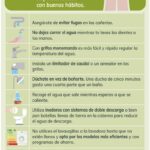 🌊💧 Ahorrar agua con una botella: Tips y trucos para mejorar tu consumo hídrico
🌊💧 Ahorrar agua con una botella: Tips y trucos para mejorar tu consumo hídrico 💦🧽 Se ahorra agua usando el lavavajillas: ¡Descubre cómo optimizar este práctico electrodoméstico!
💦🧽 Se ahorra agua usando el lavavajillas: ¡Descubre cómo optimizar este práctico electrodoméstico!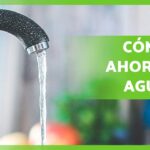 💧💡 10 consejos para ahorrar agua en tu hogar y cuidar el planeta
💧💡 10 consejos para ahorrar agua en tu hogar y cuidar el planeta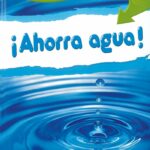 💧🎶 Ahorra agua con vinilo: una alternativa sostenible y divertida 💧🎶
💧🎶 Ahorra agua con vinilo: una alternativa sostenible y divertida 💧🎶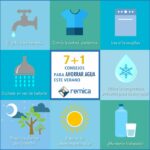 💦🌴 Ahorrar agua en vacaciones: Consejos clave para un viaje sostenible 🌍💧
💦🌴 Ahorrar agua en vacaciones: Consejos clave para un viaje sostenible 🌍💧 🌊💦 Los mejores consejos para ahorrar agua este verano: ¡Cuida el planeta y tu bolsillo!
🌊💦 Los mejores consejos para ahorrar agua este verano: ¡Cuida el planeta y tu bolsillo!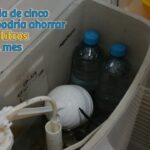 💧 Ahorrar agua en el WC: ¡Trucos y consejos imprescindibles!
💧 Ahorrar agua en el WC: ¡Trucos y consejos imprescindibles!